QOTD: Do You Want a Ford Mustang or a Chevrolet Camaro?
It’s a question that goes back some 50 years.
Nixon or Humphrey.
No, wait. Camaro or Mustang.
Forget your Camry vs. Accord monotony, your F-150 vs. Silverado one-upmanship, and the Smart Fortwo vs. Scion iQ debate that routinely breaks the internet. This, this is the American automotive debate of the decade. And the decade before. And the decade before that.
It’s as though Ali and Frazier just kept on fighting. Annually. For decades. It’s the Yankees and Mets meeting in the World Series every year. It’s like — and I know you don’t want me to go there — Trump vs. Hillary in 2020, 2024, 2028, 2032, 2036…
If you could have just the one, which would it be? Ford Mustang or Chevrolet Camaro?
Go back in time if you must, but the battle of which we speak is a current one. Both cars are now firmly entrenched in their sixth generations. The Mustang never departed, of course. But the Camaro, after dropping out of production in 2002, returned in 2009 with tremendous sales success. The Camaro was America’s favored muscle coupe from 2010 until the end of 2014, a five-year romp.
But the dawn of the latest Mustang brought about renewed popularity for the Ford pony car, not just in the United States but around the world, even in right-hand-drive form. The Mustang was by far the more popular car over the last two years.
But with the right prices, can the Camaro become the more popular car? In April, General Motors sold 8,737 Camaros in the U.S., easily besting the rapidly declining Ford Mustang. The Camaro did so with increased transaction prices, an incentive reduction compared with March, and less fleet emphasis than the Mustang.
After a rocky start, the Camaro just might be back.
For you, pricing may have nothing to do with it. You’ll want the Mustang because of the 5.0 badge, perhaps, or because of the sequential taillights. Or maybe you’re among the thousands who would happily pay extra for a Camaro because of its sharper dynamics or larger V8.
One thing is certain. Deep down, even among those of us who are unbiased, even among those who believe we have no dog in this fight, we all have a favorite. Which one would you actually buy?
Neither is not an option, you Dodge Challenger-loving so and so.
Timothy Cain is the founder of GoodCarBadCar.net and a contributing analyst at The Truth About Cars and Autofocus.ca. Follow on Twitter @timcaincars.
More by Timothy Cain
Latest Car Reviews
Read moreLatest Product Reviews
Read moreRecent Comments
- Cprescott People do silly things to their cars.
- Jeff This is a step in the right direction with the Murano gaining a 9 speed automatic. Nissan could go a little further and offer a compact pickup and offer hybrids. VoGhost--Nissan has laid out a new plan to electrify 16 of the 30 vehicles it produces by 2026, with the rest using internal combustion instead. For those of us in North America, the company says it plans to release seven new vehicles in the US and Canada, although it’s not clear how many of those will be some type of EV.Nissan says the US is getting “e-POWER and plug-in hybrid models” — each of those uses a mix of electricity and fuel for power. At the moment, the only all-electric EVs Nissan is producing are the Ariya SUV and the perhaps endangered (or maybe not) Leaf.In 2021, Nissan said it would make 23 electrified vehicles by 2030, and that 15 of those would be fully electric, rather than some form of hybrid vehicle. It’s hard to say if any of this is a step forward from that plan, because yes, 16 is bigger than 15, but Nissan doesn’t explicitly say how many of those 16 are all-battery, or indeed if any of them are. https://www.theverge.com/2024/3/25/24111963/nissan-ev-plan-2026-solid-state-batteries
- Jkross22 Sure, but it depends on the price. All EVs cost too much and I'm talking about all costs. Depreciation, lack of public/available/reliable charging, concerns about repairability (H/K). Look at the battering the Mercedes and Ford EV's are taking on depreciation. As another site mentioned in the last few days, cars aren't supposed to depreciate by 40-50% in a year or 2.
- Jkross22 Ford already has an affordable EV. 2 year old Mach-E's are extraordinarily affordable.
- Lou_BC How does the lower case "armada" differ from the upper case "Armada"?



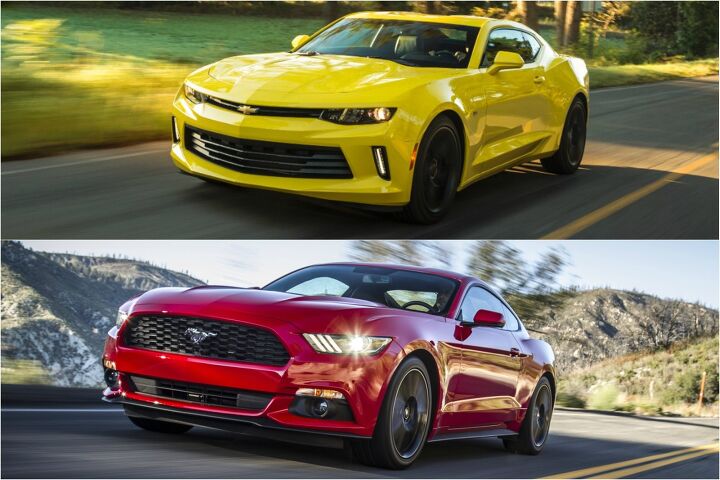















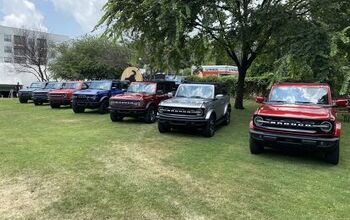
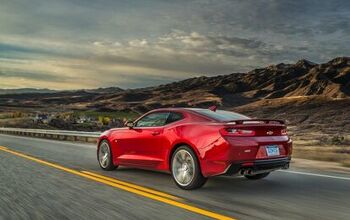
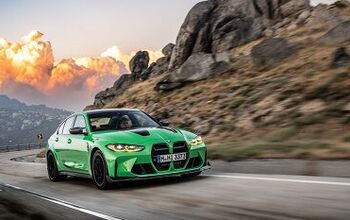











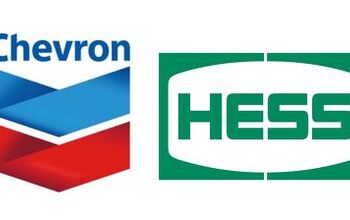
Comments
Join the conversation
I'm a Mustang loyalist to the bone. In high school I drove a '76 Mustang II Mach 1 with a 4 cylinder (later a 302) when my friends were driving Camaros and Cutlasses. If I can stay loyal then I'm certainly not gonna change now. My first choice is a 2014 GT (Mustang #9 for me) or a '65 Fastback since they're in my garage. I'm not a huge fan of the current Mustang from the front, looks too much like a Fusion. I do like the upcoming 2018 though. The new Camaro honestly isn't' a bad looking car although I haven't driven one. The last F-body I drove was a friend's WS6 Trans Am; I felt like I was sitting 10" from the pavement and could barely see what was ahead of me. Crazy quick though.
The last line made me laugh (I own a Challenger). Ford Mustang, hands down, even if it does share styling cues with other cars in the Ford stable. I find myself doing a double take when I see a new Mustang; I can't say I do the same with Camaros, although they're excellent machines.